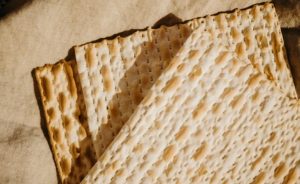 Thousands of years ago, before ecology became a worldwide human concern, Judaism dealt in a detailed and sophisticated manner with environmental issues.
Thousands of years ago, before ecology became a worldwide human concern, Judaism dealt in a detailed and sophisticated manner with environmental issues.
In Genesis (1:28), G-d commands man to “fill the world and subdue it.” It seems the Torah permits us to use the world as we see fit. However, a few verses later (Genesis 2:15), the Torah counters this statement by telling us that G-d put Adam in the Garden of Eden “to work it and to guard it.” We see that while G-d indeed wants us to both use the world for our needs, its only while being careful to preserve the world and not destroy it.
A classic example of this delicate balance comes from Deuteronomy 20:19-20:” When in your war against a city you have to besiege it a long time in order to capture it, you must not destroy its trees, wielding the ax against them. You may eat of them, but you must not cut them down…” This is the prohibition against destroying fruit trees at a time of war. Why specifically fruit trees? Wartime usually results in some destruction of natural resources, however it must be done in a way that minimizes destruction, i.e. destroy the tree that does not bear fruit before the one that does bear fruit (Talmud – Baba Kama 91b). This line of thought highlights the Torah perspective on the environment, while we may use the world for our needs, it is forbidden to cause unnecessary damage to the environment, known as Baal Taschit.
 This attitude is also reflected in the concern for the preservation of all species. In the Talmud (Shabbat 77b), it states : “Of all that the Holy One, Blessed be He, created in His world, He did not create a single thing without purpose….” Meanwhile, the famous Torah commentator, Nachmanides, suggests that various laws in the Torah are intended foster a sensitivity for the integrity of all of Creation, including Biblical prohibitions against mixing species, slaughtering an animal and its offspring on the same day, taking the mother bird when taking the eggs or young offspring, and so on (commentary to Leviticus 19:19 and Deut. 22:6).
This attitude is also reflected in the concern for the preservation of all species. In the Talmud (Shabbat 77b), it states : “Of all that the Holy One, Blessed be He, created in His world, He did not create a single thing without purpose….” Meanwhile, the famous Torah commentator, Nachmanides, suggests that various laws in the Torah are intended foster a sensitivity for the integrity of all of Creation, including Biblical prohibitions against mixing species, slaughtering an animal and its offspring on the same day, taking the mother bird when taking the eggs or young offspring, and so on (commentary to Leviticus 19:19 and Deut. 22:6).
A Kabbalisitc approach to ecology also suggests as such, as the Baal Shem Tov described, “the presence of G-d permeates all four orders in the world: the inanimate objects, the plants, living things, and man. It is inherent in all creatures in the universe whether they are good or bad…”
 How is this attitude cultivated in Judaism? The truth is many positive commandments themselves lend an inherent holiness to nature (orlah, ma’aser, shemita.etc). In addition, the entire calendar revolves around the agricultural cycle. Tu B’Shvat celebrates the trees, Passover is tied to the barley harvest in the spring, Shavuot celebrates the wheat harvest and ripening of the first fruits in the early summer, and Sukkot features the harvest festival in the fall. Today, while most are disconnected from an actual connection to Land and its cycles, the mitzvot and holidays, by extension, have the power to enlighten our understanding of nature as a reflection of deeper spiritual truths.
How is this attitude cultivated in Judaism? The truth is many positive commandments themselves lend an inherent holiness to nature (orlah, ma’aser, shemita.etc). In addition, the entire calendar revolves around the agricultural cycle. Tu B’Shvat celebrates the trees, Passover is tied to the barley harvest in the spring, Shavuot celebrates the wheat harvest and ripening of the first fruits in the early summer, and Sukkot features the harvest festival in the fall. Today, while most are disconnected from an actual connection to Land and its cycles, the mitzvot and holidays, by extension, have the power to enlighten our understanding of nature as a reflection of deeper spiritual truths.







